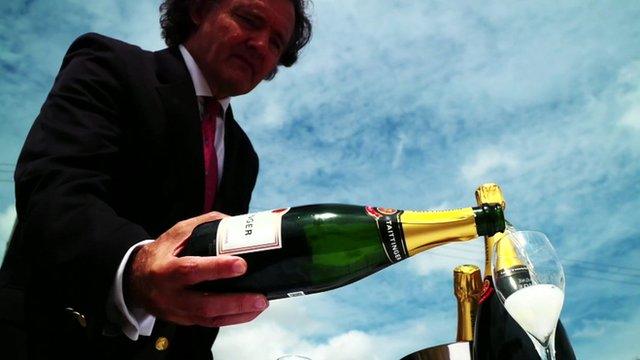Siberian wine could be coming to a table near you
- Published
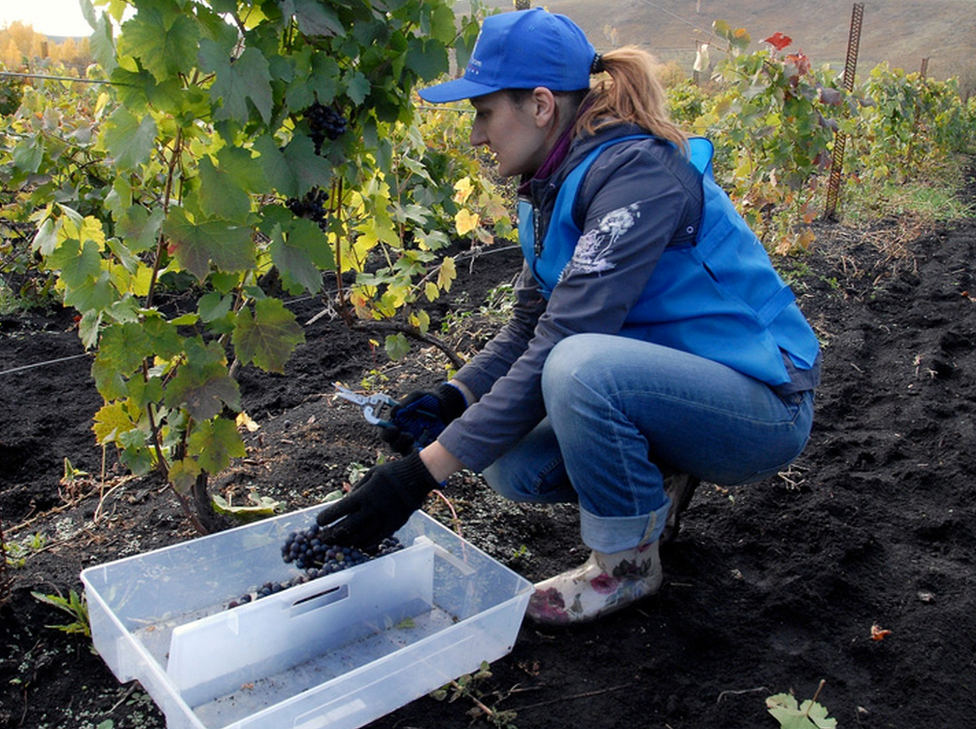
The Altaiskaia Loza ["Altai Vine"] wine company is making both red and white wine
Siberia is known for its bitter, snowy winters - hardly the conditions associated with a thriving wine industry.
But a dogged group of winemakers in the foothills of the Altai Mountains have conquered the frosts to produce both red and white varieties, and hope to start selling them next year.
Vladimir Vagner, head of the Altaiskaia Loza ["Altai Vine"] wine company, is convinced the wines will prove a hit around the world.
He recruited the help of experts from France to find grapes that could weather the frosts and thrive during the area's balmy summers - which can be as hot as many parts of France and other wine-producing countries.
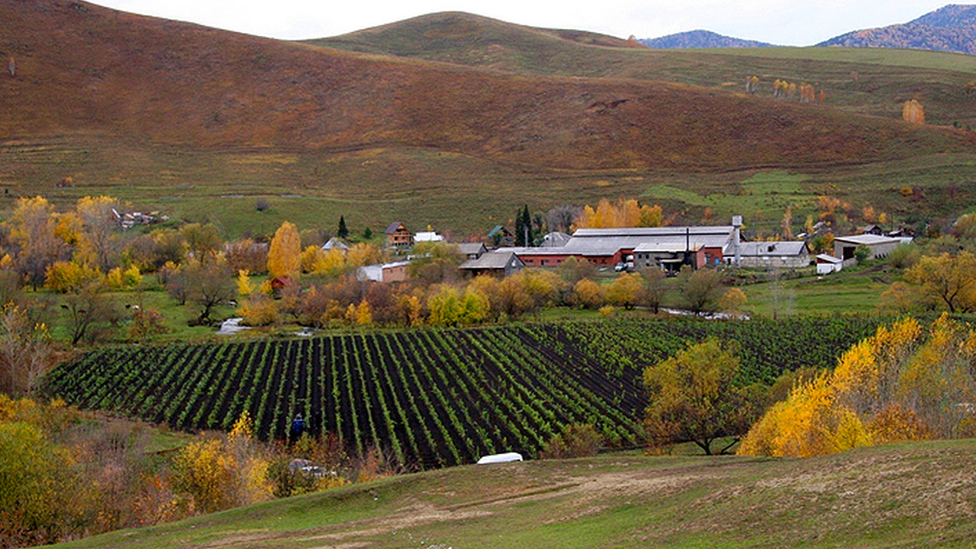
The first vineyard was planted in 2009 with grapes designed to resist the cold
Grapes to weather the winter
He told the Siberian Times, external: "Our French partners spent two years studying the climate conditions and soil, and once they made sure these were appropriate, they started choosing grape types.
"Initially, we selected an area for the vineyards. It was a former fruit garden, we planted 600 saplings to see if they could make it through winter - and all but two of them actually did so."
The vineyards lie around the village of Altaiskoye (population: 4,000). The first was planted in 2009 using cuttings from the Franche-Comté region of eastern France, supplied by the Guillaume family nursery. It included 20 types of grape chosen specially for their hardiness.
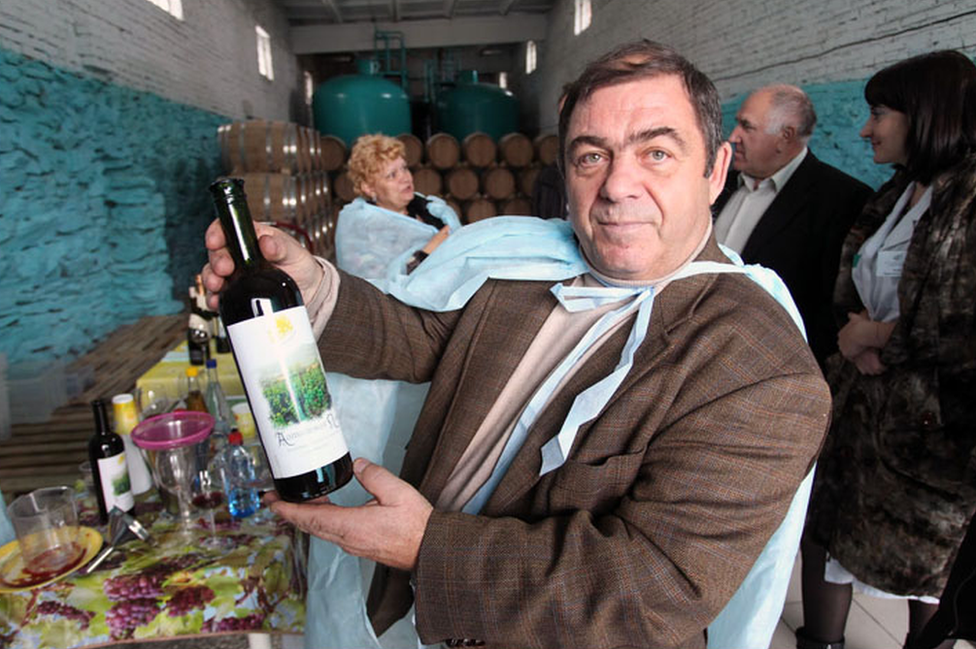
Vladimir Vagner hopes to put Siberian wine on the map
Ultimately, the growers picked four or five - including Pinot Noir and Muscat Blanc.
"We produced last year, three kinds of red wine and have made pink wine by mixing white and red grapes," Mr Vagner told the BBC.
"We made a white wine based on the varieties of Muscat, and as an experiment made the first wine from frozen grapes - so called "ice wine". Given our climate, we will continue to apply this technology further."
Ice wine, also known by its German name "Eiswein", is a very sweet dessert wine made from grapes that have been frozen while still on the vine - an ideal solution for winemakers in snow-capped climes.
Temperatures in Siberia are well below freezing throughout the winter, and remain sub-zero into April. In January, the average temperature is -17.8 °C (-0.4 °F), but by July the mercury can hit a more enjoyable 13.8 °C (56 °F).
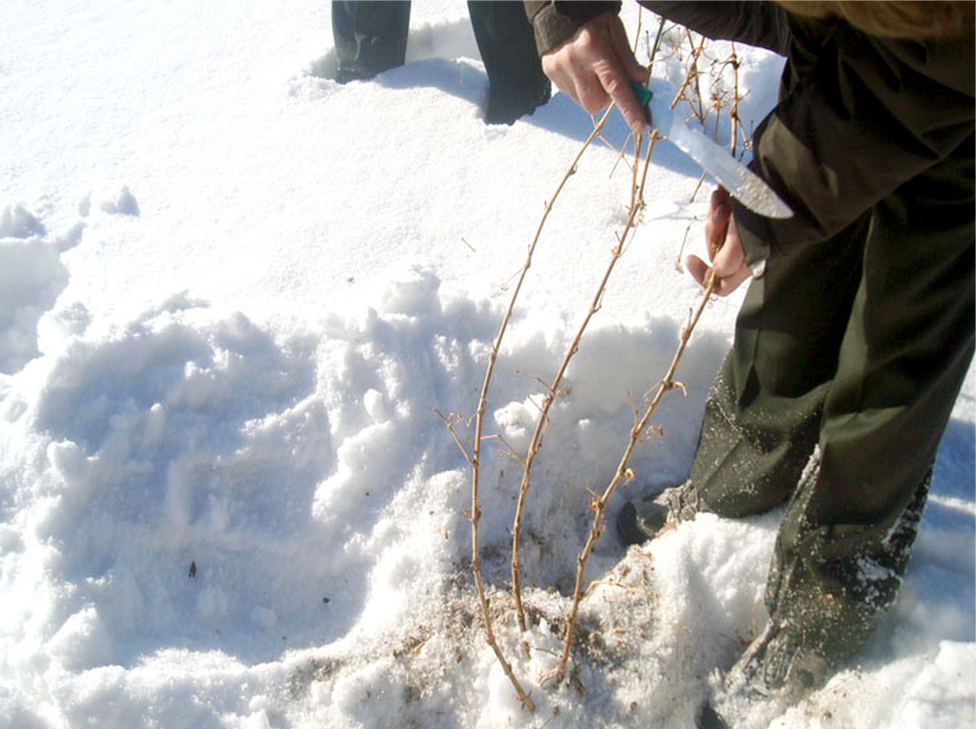
The team at the vineyard are adapting their methods to work round - or even benefit from - the ice
Mr Vagner, 63, says all the wine is organic, grown without the use of chemicals.
So will it actually taste any good? He says it is a little soon to be certain - but the signs are very positive.
"The thing is, flavour forms not immediately but by year 10. So that's why in [the] first two years [the] assessment was, "the wine is a bit sour, not enough sugar" and only in 2014 was our white wine described as good in terms of flavour, scent and colour.
"The red wine was described as good in flavour."
A question of investment
At the moment, the vineyard is allowed to make wine for domestic use and for tastings. But at 20 million roubles (£240,500), a commercial licence to sell the wine is a costly investment. Mr Vagner is keen to attract investors to help the 12 hectare project reach its full potential.
He told the BBC that a small change to Russian law would hugely boost the business's prospects.
"I hope that the wine in Russia will be transferred from the category of alcohol products to the category of food, and then various issues associated with the licence demand, any headaches with the need to make paperwork, will disappear by themselves."
- Published4 August 2016
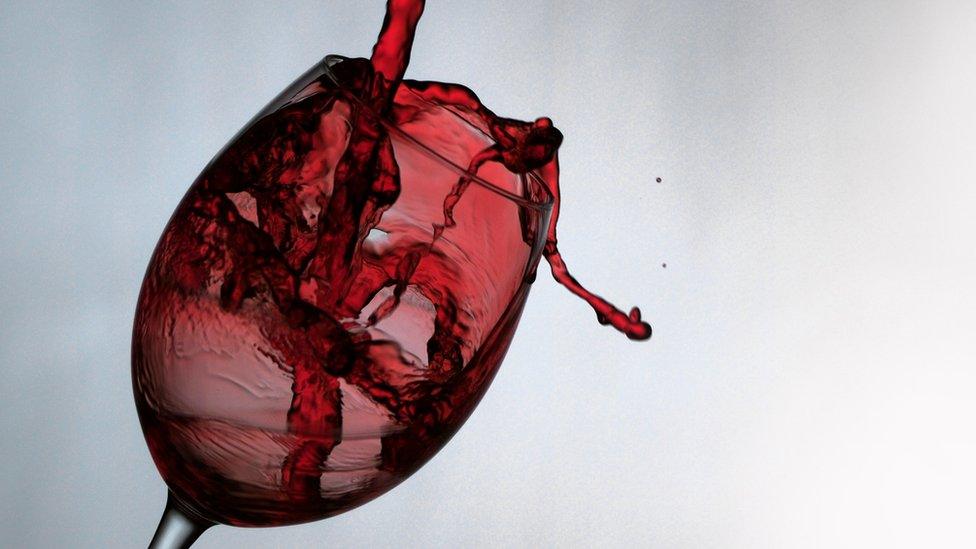
- Published25 August 2016
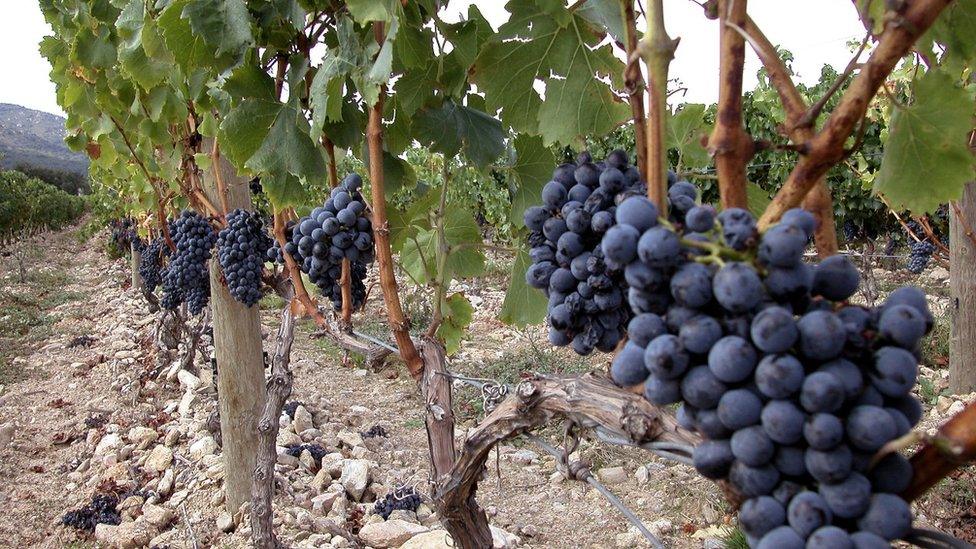
- Published8 July 2016
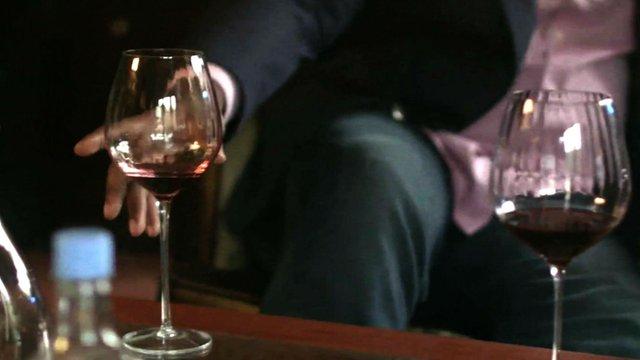
- Published16 August 2016
